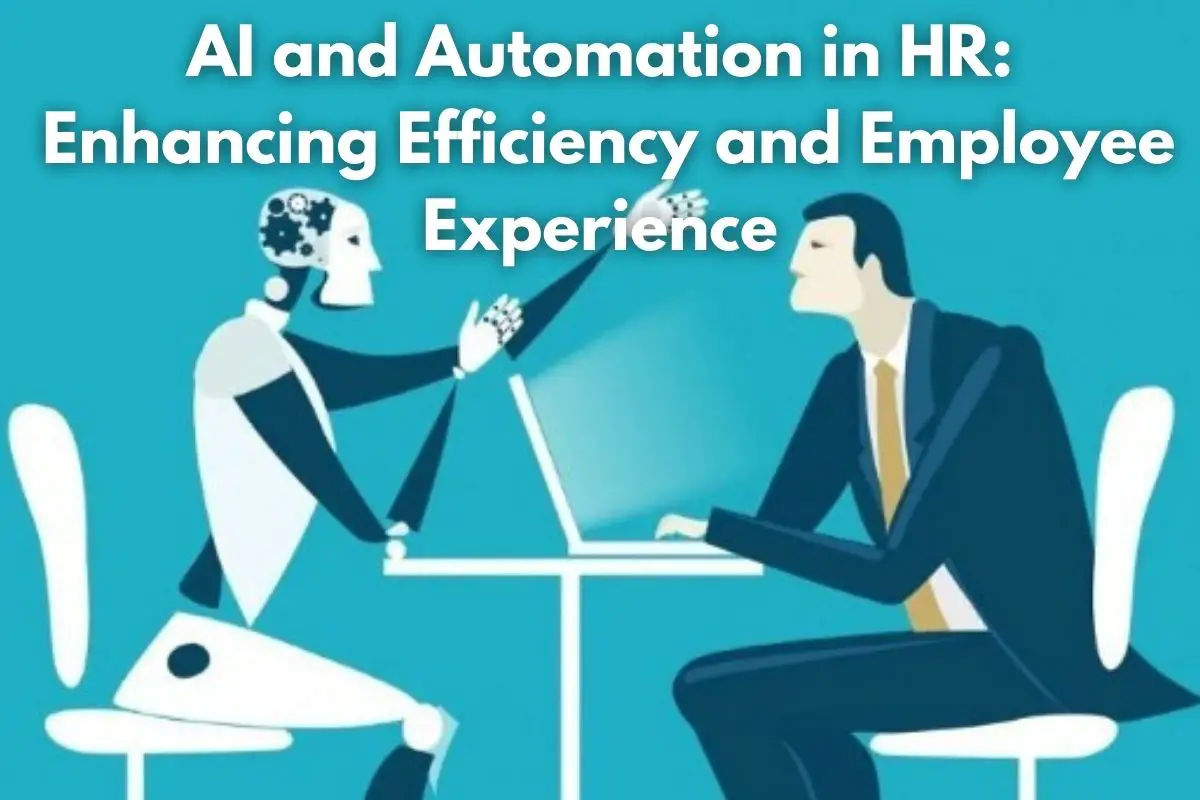In the dynamic landscape of Human Resources (HR), the integration of Artificial Intelligence (AI) and automation has emerged as a transformative force, reshaping traditional HR practices and elevating the overall employee experience. This article explores the multifaceted impact of AI and automation in HR, delving into how these technologies enhance operational efficiency, foster strategic decision-making, and contribute to a more engaging and employee-centric workplace.
1. Streamlining Recruitment Processes
One of the primary areas where AI and automation have made substantial inroads is in the recruitment process. AI-powered tools can analyze resumes, identify relevant skills, and even conduct initial candidate screenings. Automation streamlines repetitive tasks such as scheduling interviews, allowing HR professionals to focus on more strategic aspects of talent acquisition. This not only accelerates the hiring process but also ensures a more objective and data-driven candidate selection.
2. Personalizing the Employee Onboarding Journey
AI contributes to a personalized onboarding experience by tailoring the orientation process to individual employee needs. Chatbots powered by AI can provide real-time answers to new hires' queries, guide them through onboarding tasks, and offer insights into company culture. This personalized approach enhances the onboarding experience, helping employees acclimate to their roles and fostering a positive first impression.
3. Predictive Analytics for Talent Management
AI's predictive analytics capabilities have revolutionized talent management strategies. By analyzing historical data, AI algorithms can forecast trends related to employee performance, turnover, and engagement. HR professionals can use these insights to proactively address potential challenges, identify high-potential employees, and tailor talent development programs. Predictive analytics empowers HR to make informed decisions that align with organizational goals.
4. Employee Engagement and Well-being
AI-driven tools play a crucial role in monitoring and enhancing employee engagement and well-being. Chatbots and sentiment analysis tools can gauge employee satisfaction levels, identify potential sources of discontent, and offer timely interventions. Automation facilitates the delivery of personalized well-being programs, ranging from stress management resources to fitness challenges, contributing to a healthier and more engaged workforce.
Also Read: Top Tech Trends Shaping the Future of 2024
5. Performance Management and Continuous Feedback
The traditional annual performance review model is giving way to continuous performance management facilitated by AI. Automated systems provide real-time feedback based on predefined performance metrics, fostering a culture of continuous improvement. AI algorithms can identify patterns in employee performance, enabling HR to offer targeted development opportunities and interventions.
6. HR Analytics for Informed Decision-Making
HR analytics powered by AI enables data-driven decision-making. By aggregating and analyzing vast datasets, organizations gain insights into workforce trends, diversity metrics, and areas for improvement. These analytics not only inform strategic HR initiatives but also support broader organizational goals, aligning human capital strategies with overall business objectives.
7. Employee Learning and Development
AI contributes to personalized learning and development programs by analyzing individual employee skills, preferences, and learning styles. Automated systems can recommend relevant training modules, suggest career paths, and even predict future skills requirements. This personalized approach ensures that employees receive targeted development opportunities tailored to their professional aspirations and the evolving needs of the organization.
8. Ensuring Data Security and Ethical AI Practices
As HR increasingly relies on AI and automation, ensuring data security and ethical AI practices becomes paramount. Organizations must implement robust cybersecurity measures to safeguard sensitive employee information. Ethical considerations, including transparency in AI decision-making and addressing bias in algorithms, are critical to maintaining trust and fairness within the workforce.
Learn More: HR Trends
Conclusion: A Harmonious Fusion of Technology and Humanity in HR
The integration of AI and automation in HR marks a paradigm shift, where technology augments human capabilities rather than replacing them. By automating routine tasks, predicting workforce trends, and personalizing employee experiences, AI and automation contribute to a more efficient, strategic, and people-centric HR function. As organizations navigate the evolving landscape of work, embracing the harmonious fusion of technology and humanity in HR ensures a future where employees thrive, and organizations achieve sustained success.







